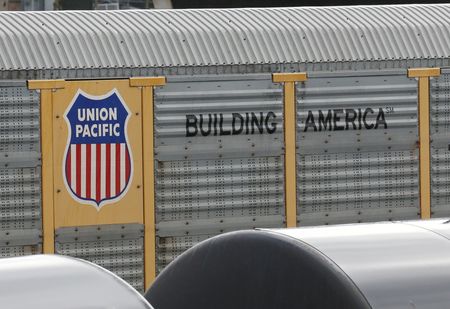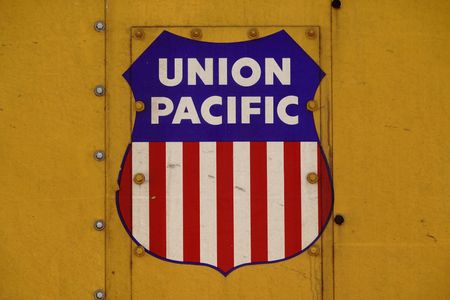 1
1 1
1


By Nathan Gomes
(Reuters) -Union Pacific Corp on Thursday cut its annual volume growth forecast, as the U.S. railroad operator struggles with staffing shortages and weakness in intermodal demand amid a shift in consumer spending to experiences from goods.
The company also forecast a slightly worse 2022 operating ratio, a key profitability metric for railroads. It expects the ratio to be around 60% from around 58% forecast earlier, in part due to a new tentative labor deal with unions.
“We’ll probably see some headwinds in parcel and domestic intermodal,” Chief Executive Officer Lance Fritz told Reuters in an interview.
Rail intermodal involves the transportation of containers and truck trailers by rail and a truck and/or a ship.
Shares of Union Pacific, which connects West Coast ports to key terminals such as Chicago, were down about 5% in afternoon trade. The company’s dour forecast pulled shares of other operators CSX Corp and Norfolk Southern down about 2%.
The railroad industry has come under severe criticism from shippers and the U.S. Surface Transportation Board for cutting staffing levels to the bone in pursuit of a leaner operating model, which has left it struggling to fulfil demand.
In response, railroads have said they are hiring as quickly as possible. Fritz said Union Pacific had exceeded its hiring targets for the year.
He added that the company was moving some employees between locations, called borrow-outs, to manage staff shortages.
Nevertheless, staff shortages continued to weigh on the company’s performance as it trimmed its forecast for full-year volume growth to about 3% from 4%-5%.
“We anticipate service challenges to linger and accelerating volume growth to be a challenge,” Wells Fargo analyst Allison Poliniak-Cusic said.
Union Pacific’s quarterly net income rose 13% to about $1.9 billion. Excluding a $114 million charge from the tentative labour deal, it posted a profit of $3.19 per share, ahead of Refinitiv IBES estimates of $3.06 per share.
(Reporting by Nathan Gomes in Bengaluru; Editing by Subhranshu Sahu and Shailesh Kuber)